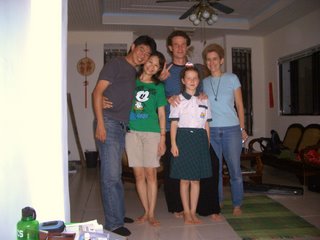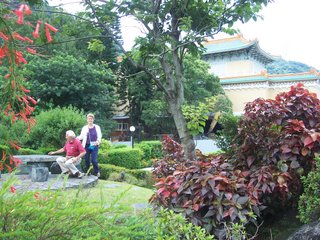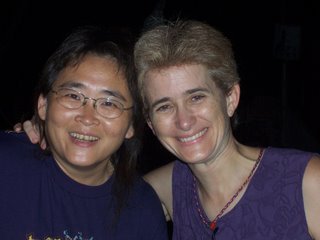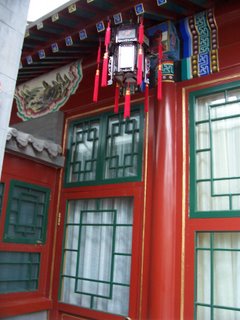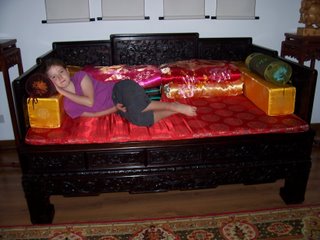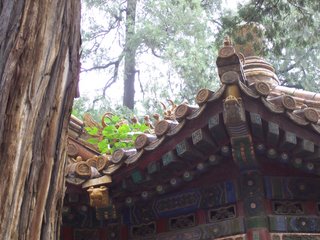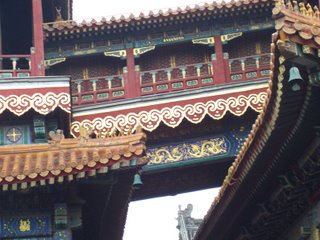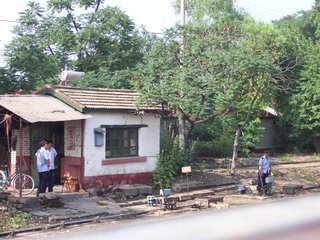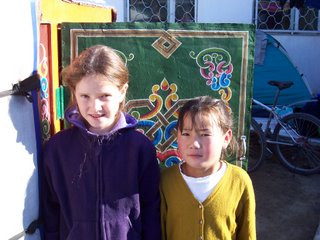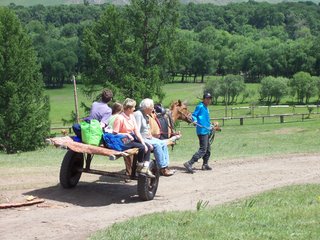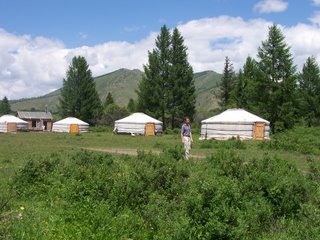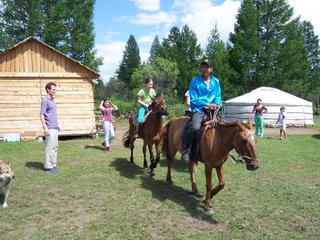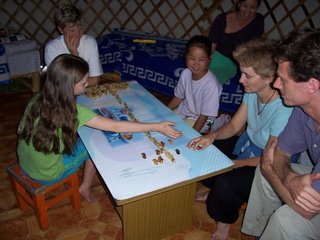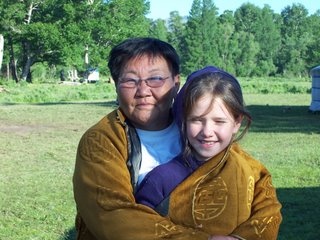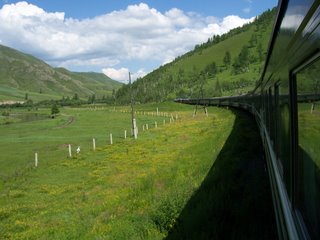
Danesh had a friend in China, just over the Macau border, who arranged to meet us, and purchased our bus tickets for us. It was such a relief to not have to have our first moments in China confused and disoriented. As it was, we barely found which bus was the right one, and scrambled to get our things aboard. We bought a little food, but we were pretty unprepared for the bus experience.
The bus was a sleeper – 36 beds, lower and upper, three across in a regular-size bus. The beds tilted up slightly at the head so you could lie back but still see out. We had the seats at the front, so we could really see well through the front and side windows. It was 6pm when we left, set to arrive in the morning in Yangshou, Guailin province.
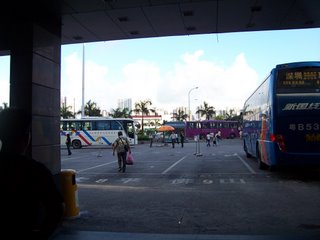
At first we just drove through city and suburbs, and the biggest challenge was keeping McKinley seat belted into her upper bunk. Then it was a challenge because we discovered that the on-board toilet was non-functional. But the bus made regular stops, and we had to dash off, use the available facilities, and dash back on. Everyone drifted off to sleep but me. At 10:15, I noticed the bus driver showing a sign of confusion. The road we were on had been a highway, but now it was dirt, and potholed with huge potholes – half a meter deep. A meter or more around. It was obviously a work in progress. The second driver was sleeping, and the attendant was discussing directions with the driver.
They stopped to ask. They turned around. They drove for a while. The stopped to ask.
After the fourth or fifth time doing this routine, the second driver woke up. The driver’s voice had risen a bit in frustration. The second driver was no help. Apparently the route to the highway was under construction, and the signposts had been removed. We were completely lost.
By now, Joplin and my dad were awake, and we all sat back, comfortably relaxed, and quite grateful that we were not the drivers. We’d come in late, but it was no problem. We were off on our adventure, and timeless freedom was a gift we had.
Finally at 12:30, we maneuvered down a few side streets, saw a tiny road sign for the highway, and we were on our way.
When we woke up in the morning, it was clear that we were not in Kansas anymore.
The highway was very rough, broken pavement. The bus blared its horn and plowed through traffic, which was bicycles, small cars, and big trucks, as well as people on foot and some animals. We passed villages of brick houses and miles and miles of fields – rice and corn. Then the distinctive Guailin mountains popped out of the ground, like a giant poking his fingers into a forested glove.
